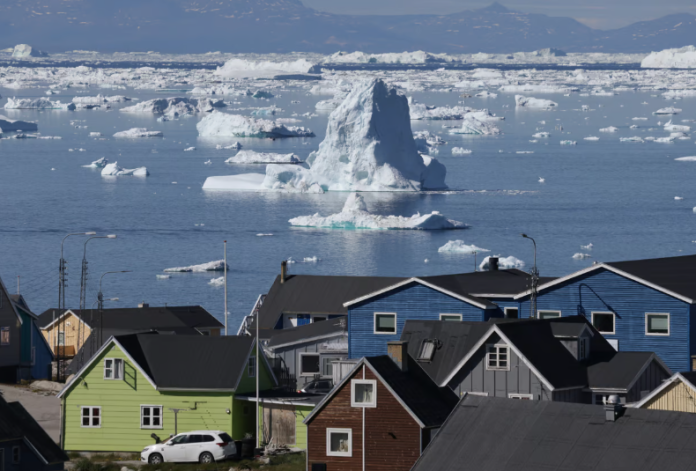America’s 20th and 19th century expansionists would have been delighted by the president-elect’s proposed land grab.
In 1946, the last time the United States tried to buy Greenland, Washington offered $100 million in gold bullion and a land swap that would have transferred ownership of Point Barrow in Alaska over to Denmark.
Maybe the Danes should have agreed. If they had, then they wouldn’t now have to be fending off the persistent would-be purchaser Donald Trump and enduring one of his sons touring the island marketing the benefits of becoming American. They also would have been the beneficiaries of the richest petroleum discovery in American history with the opening up of the giant oilfield in Prudhoe Bay in 1967.
“While we owe much to America, I do not feel that we owe them the whole island of Greenland,” then Danish Foreign Minster Gustav Rasmussen told the infuriated Americans in 1946 when rejecting their offer.
That offer had been made because the joint chiefs of staff and State Department officials decided turning the world’s largest island, located on the shortest polar route between Washington and Moscow, into the 51st state was one of military necessity for the United States. Time magazine dubbed the island the world’s largest “stationary aircraft carrier.”
The Americans judged the island was completely worthless to Denmark and had been neglected — a common theme in other U.S. bids to purchase Greenland. “There are few people in Denmark who have any real interest in Greenland, economic, political or financial,” announced William Trimble, a senior State Department official.
That didn’t persuade the reluctant Danes — all the country’s political parties dismissed the proposal with Rasmussen dubbing it absurd in a parliamentary debate.
Meanwhile, the Americans were equally obdurate in their refusal to withdraw from U.S. bases first established on the island in 1941 to ensure Nazi Germany couldn’t use Greenland to attack the American mainland nor gain control of important raw materials. That refusal eventually prompted Denmark to join NATO.
Long line of suitors
Trump is just the latest in a long line of suitors — and not just American — who have come knocking at Denmark’s door wanting take the island off its hands.
Trump is likely to prove among the most persistent and aggressive — he’s now upped the ante by declining to say whether he would ever invade Greenland, the first time such a threat, in jest or otherwise, has been made by a U.S. leader. But it got him the headlines.
“If you had told me 10 years ago that I’d be interviewing about Greenland, I would not have put that high up on my list of possible topics the media would be interested in,” says historian John C. Mitcham of Duquesne University in Pittsburgh. “But it is also really fascinating, somewhat troubling too, that we’re hearing the echoes of the past with Victorian language about sovereignty and security.”
He adds: “You and I are talking about this in context of Greenland, Canada, and Trump, but the same can be applied to some of the rhetoric surrounding Russian annexation in Ukraine, of Chinese maritime ambitions in the Pacific. It really is quite… What’s the phrase? New wine in old bottles.”
Critics may deride the president-elect for his expansionist ambition to annex Greenland, but geopolitical considerations and military logic have prompted U.S. diplomats before to offer to buy the island.

The first time was in 1867 when the then powerful secretary of state William H. Seward, fresh off buying Alaska from Russia, floated the idea. It was “worthy of serious consideration,” he said.
An ardent expansionist, Seward, who also coveted Canada, commissioned a favorable study, much as Trump might do to lure investors to back yet another casino hotel. “The final document — which Seward had printed and distributed to lawmakers— was hardly objective in its findings,” wrote historian Jeff Ludwig, director of education at the Seward House Museum in Auburn, in a 2019 article.
Certainly, ‘A Report on the Resources of Iceland and Greenland’ didn’t under-sell the potential of Greenland, and its author, Benjamin Peirce, a surveyor, waxed enthusiastically about the island’s abundant wildlife, game and fisheries, its great mineral wealth, including coal, and the fact that it was “largely more than half the size of all Europe.”






















